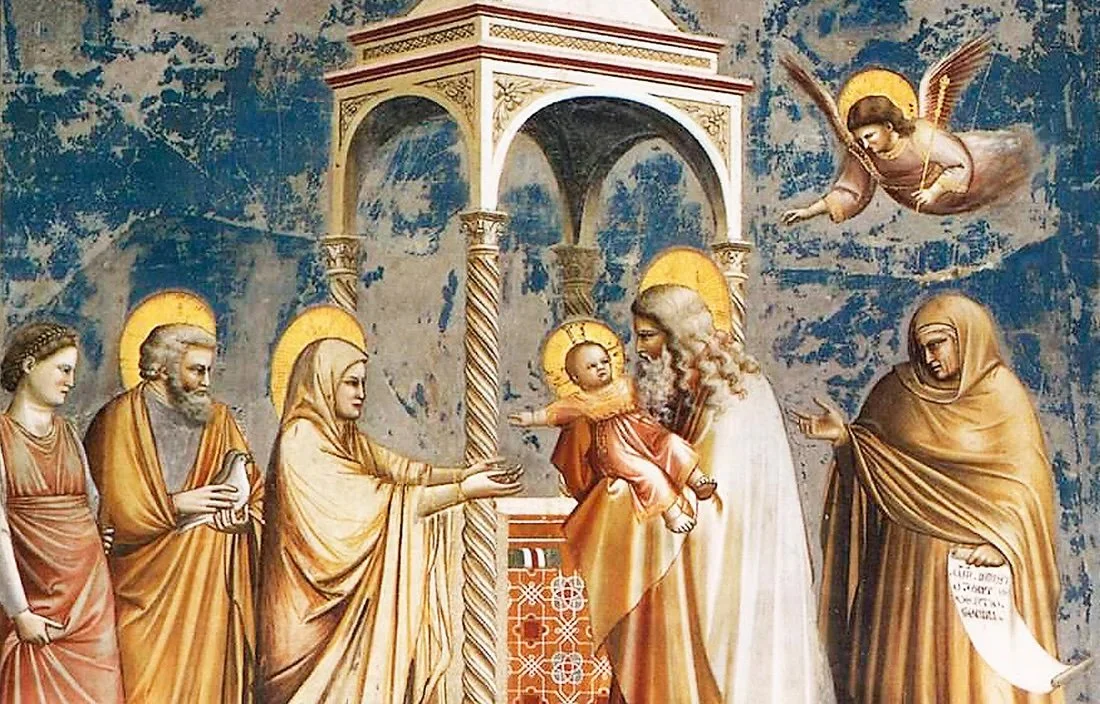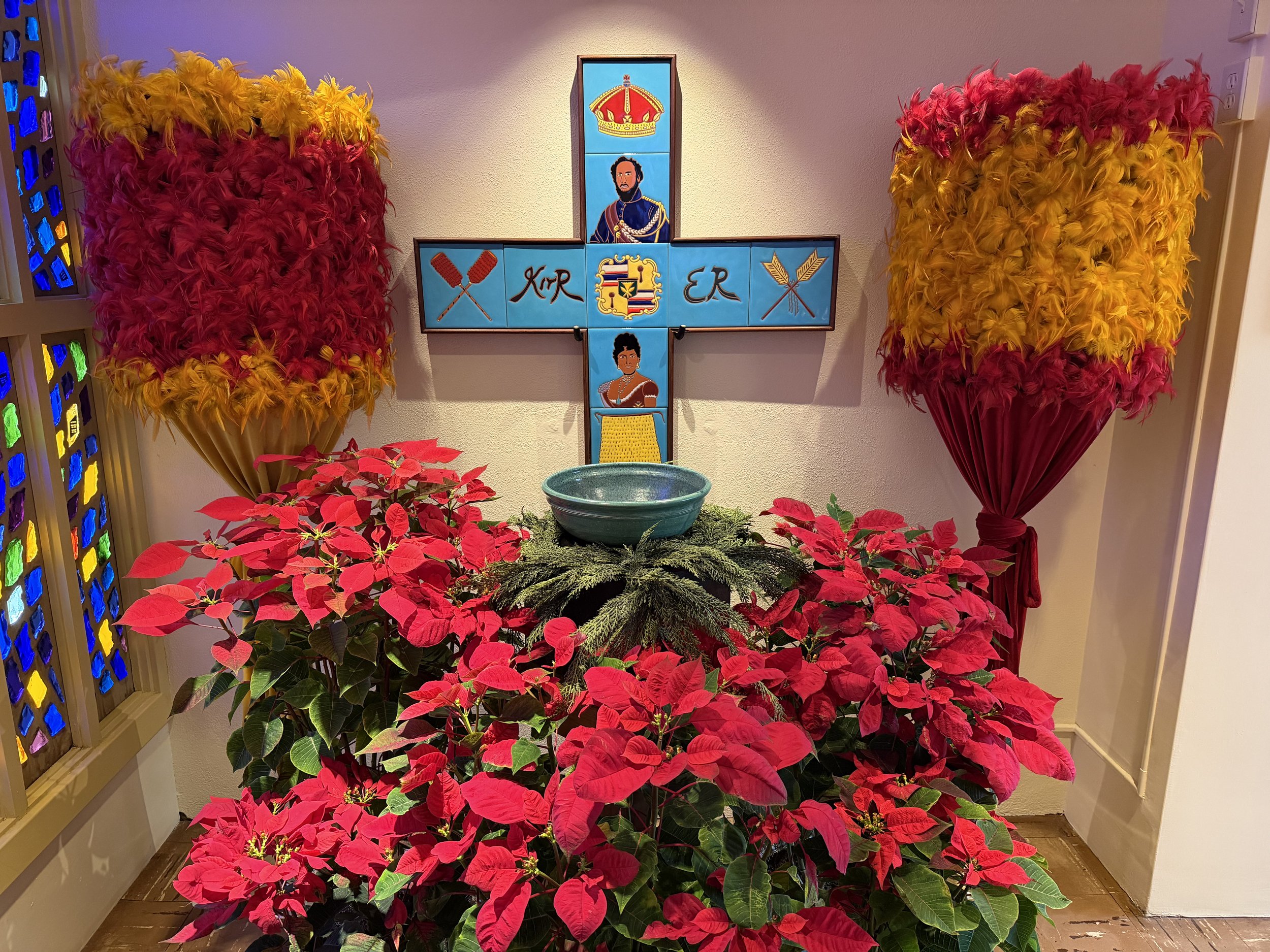From the Rector: Fasting, Trials, and Temptations
/6 March 2022 - Lent 1
Luke 4: 1-13
After his baptism, Jesus, full of the Holy Spirit, returned from the Jordan and was led by the Spirit in the wilderness, where for forty days he was tempted by the devil. He ate nothing at all during those days, and when they were over, he was famished. The devil said to him, "If you are the Son of God, command this stone to become a loaf of bread." Jesus answered him, "It is written, 'One does not live by bread alone.'"
Then the devil led him up and showed him in an instant all the kingdoms of the world. And the devil said to him, "To you I will give their glory and all this authority; for it has been given over to me, and I give it to anyone I please. If you, then, will worship me, it will all be yours." Jesus answered him, "It is written, 'Worship the Lord your God, and serve only him.'" Then the devil took him to Jerusalem, and placed him on the pinnacle of the temple, saying to him, "If you are the Son of God, throw yourself down from here, for it is written, 'He will command his angels concerning you, to protect you,' and 'On their hands they will bear you up, so that you will not dash your foot against a stone.'" Jesus answered him, "It is said, 'Do not put the Lord your God to the test.'" When the devil had finished every test, he departed from him until an opportune time. He ate nothing at all during those days, and when they were over, he was famished.
For about a month now we have been gathering on Wednesday nights to learn about the heresies of Christianity, and we will continue gathering on Wednesdays through March. So far the heresies have to do with the person of Jesus – his two natures – his divinity and his humanity. For the first few centuries of the church, Jesus’ humanity and divinity were at the center of church debates, and actually, such debates continue today. How is it that Jesus is equally human and divine? We have all heard the temptations to view Jesus as a morally superior human, but not necessarily divine, or the flip side, to see Jesus as divine with only the appearance of being human.
Today’s Gospel confronts us with an interesting reality concerning Jesus’ humanity. How is it that Jesus, if he was truly human, could fast for forty days without eating anything. Luke states, “He ate nothing at all during those days, and when they were over, he was famished.” Is it even possible to eat nothing for forty days and not die? A quick survey of fasting will bring about many stories of some people’s ability to fast for extreme periods of time. Such stories are in great contrast to us gathered here I assume. I find it difficult to fast for an entire day, let alone forty days, and if we are to be frank, most people fail at their Lenten disciplines within the first week of Lent. Lent requires will power. I cannot imagine the will power that is required to fast for forty days and forty nights.
Now to clarify, when we fast during Lent, our fast is much simpler than Jesus’s. We are permitted to eat each day when we choose to fast. Fasting during Lent is not a complete abandonment of food. Rather the rule is described as eating one full meal a day, as well as two smaller meals during the day, and the two smaller meals are not to equal one additional full meal. Ironically, some have remarked that what the church states as the fast is actually the normal allocation of daily calories for humans. Do not forget that we live in a society that generally has an abusive relationship with food. If we are not over-eaters, then we are most likely under-eaters. Furthermore, fasting is for people 18-59 – you kupuna are so lucky in this case – and if you are pregnant, you do not fast, and if you have medical issues, you do not fast. That is a lot of exceptions from fasting, even though we have just heard how the church’s guidance on fasting is actually not that extreme. In fact, we have all witnessed political activists do fasts that are much more extreme in comparison. And let’s not forget about our Lord – he set the golden standard of fasting for forty days without any food.
And yet, for Jesus, his fasting of forty days in the wilderness was simply a preparation for his crucifixion on the cross – something entirely more brutal and vicious. And yet whether it was the fasting or the dying on the cross, we witness the remarkable humanity of Jesus – a humanity without sin.
Interestingly enough, forty days and forty nights in the scriptures may not actually mean an exact period of forty days and forty nights. Rather, it simply indicates a long time. This was the case with Moses on Mount Sinai, as well as Elijah before he perceived the still small voice in the sheer silence. From the Judeo-Christian experience, forty days and forty nights indicates a long period of testing, And lest we think, “now that makes a lot of sense – it probably wasn’t a whole forty days and forty nights.” Perhaps, or perhaps not. Maybe forty days and forty nights was actually a longer period than forty days and forty nights. Ultimately it does not matter. What we are witnessing is how we are called to enter into long, deliberate, periods of testing and trial if we are to come to know Jesus Christ more fully.
And so here we are beginning Lent for another time, seeking to grow closer to God. Here we are practicing self-denial and various disciplines for forty days and forty nights so that when Easter arrives, our faith will be stronger and our relationship with God will be deeper.
There are many ways that each of us can practice a holy Lent. We can read scripture more frequently, we might come to the daily masses at the church twice a week in addition to Sunday mass, we might walk the way of the cross with other parishioners on Friday nights, we might seek to add the daily offices of Morning Prayer and Evening Prayer to our daily routines, we might seek to give away more money to those in need – there are countless ways to observe this holy season.
What all these practices have at their root is intention. Trendy culture would call it mindfulness, and many people think mindfulness is only Buddhist or New Age, but truth be told, mindfulness is as old as Abraham from the Old Testament. During Lent we are called to shake the clutter from our lives and return to a single intention to Jesus Christ. So if you choose to fast, you do so in order to remember Christ whenever you eat. Losing weight is of no significance. Please remember that Lenten disciplines are not about living your best life or being your best self. That is just narcissism made acceptable. Rather, fasting is simply reordering your hunger so that it focuses on Christ rather than your weakness for bacon, or ice cream, or spam musubi.
And your disciplines are not a competition. Lent is not a season to beef up our sense of superiority. Rather, our practices should make us humble, because if we are choosing good disciplines, we will fail at them several times. For those who attend the masses on the Thursday, Friday, and Saturday after Ash Wednesday, we always pray for those who have already failed at their Lenten disciplines. It gets a few laughs, but the reality is that good practices of self-denial are not easy to do. We fail at them quickly, and we need the encouragement to restart again and again – to not give up – to keep going. Perhaps it is helpful to remember that during the Stations of the Cross, Jesus falls three times while carrying the cross. Our humanity can only do so much. Like Jesus, we have not committed sins when we fail with our disciplines for Lent, but rather we are being tested as we carry on for the prize of the cross.
This brings me to the final point. This Lent all of us want to grow closer to God, and this Lent we have chosen various disciplines to reach that goal of greater communion with our Lord. We want to grow in faith. We want to know Jesus Christ more intimately. We want to be nearer to God. All of this means that we cannot fail in our Lenten practice. We cannot fail because the desire for God is present. The world may say that we have failed at times with our Lenten disciplines, but God knows better.
The whole story of our faith is that Jesus does most things to the extreme so that the burden we carry is much, much lighter. He ate nothing for forty days and forty nights so that we can have one full meal and two smaller ones a day. He endured the agony, so that we never need to be abused. He died on the cross so that we might have life. This is how our brother Jesus operates. His will is that we should never need to endure the trials and temptations that he endured. With this in mind, our Lenten disciplines are not acts of outlandish endurance – they are acts of praise and thanksgiving. Whether we are fasting, almsgiving, worshipping, or studying, we do it as an act of thanksgiving to God, for Christ has saved us through the cross, and because of this new life given to us from God, we seek to give everything that we are to Jesus Christ.
Father Paul Lillie +








